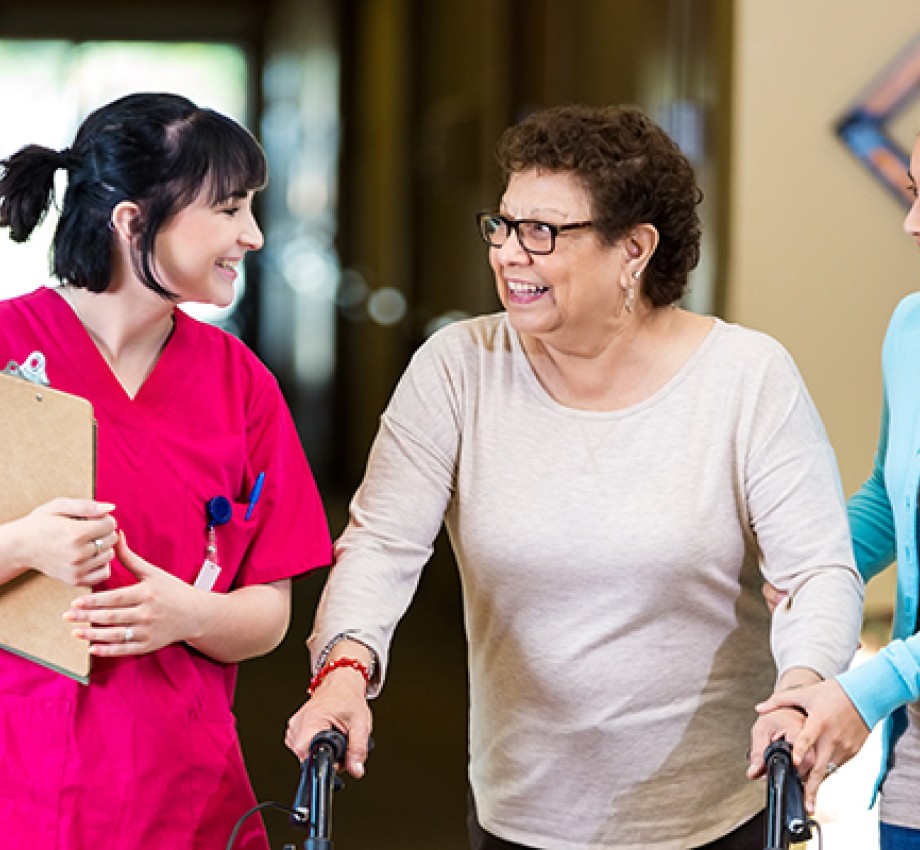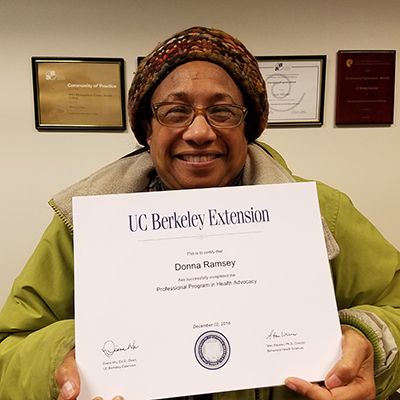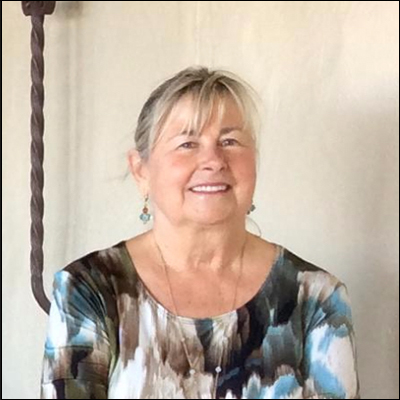Helping Others Focus on the Future

When Robin Andrae and her siblings had to make decisions about their parents’ end-of-life care, they found themselves faced with puzzling questions and hard decisions. Nobody could agree on whether assisted living or in-home care was the best option. And because of a confusing health care system, Andrae’s family didn’t know where to begin to get help or answers. So at age 65, Andrae found herself pursuing a personal interest in health care advocacy and enrolling in our courses.
Unfortunately, Andrae is not alone in trying to understand changes in insurance and then plan for long-term care—or in not knowing how to find someone who can help. By registering in the Certificate Program in Health Advocacy, she took the first official step in being a health care resource to those around her.
By the year 2030, “young old” adults—those who by that time will be aged 66 to 84—will number 61 million people in the U.S.; that’s in addition to the 9 million Baby Boomers, according to Health Services Research. That is also twice the number of senior citizens in 2000, and one of the reasons for the rise in health advocacy career opportunities.
A patient’s anxiety over a medical diagnosis also adds to the need for someone who is outside of the system and can assist in processing next steps. The Alliance of Professional Health Advocates—a professional and support organization for private, independent patient advocates—predicts that the profession “will grow 100% to 200% per year over the next decade as more and more citizens demand their services and as the number of advocates rises to meet the need.”
So how does someone who doesn’t have a medical background get the information and gain the skills to enter this growing field? Whether for a new career path or for personal or professional growth, enrolling in courses in our Certificate Program in Health Advocacy can provide the knowledge you need to understand health care issues and advocacy.
Reaching a Turning Point
Take Donna Ramsey, who experienced her own Baby Boomer life changes and needed to reevaluate her professional and academic goals. After seeing an advertisement for Extension, Ramsey took her first step toward a new career path. “I felt an affinity for Behavioral Health Sciences,” she says, “so I attended a free lecture that explored the issues of clinical empathy, patient receptivity and uncertainties relative to possible changes to the Affordable Care Act. Because of that initial thought-provoking experience, I registered for the Health Advocacy program.”

The program introduced Ramsey to concepts such as the health care continuum and differentiating patient agendas. In her classes, she broke down social-ecological patient models, debated legal and ethical issues in covered health care availability, explored the training and use of therapy pets, and analyzed case studies. She also connected with a diverse group of knowledgeable peers: “Some were caregivers to elderly parents, others were professionals who came from health care–related fields. Another—a cancer survivor—developed an educational science program for hospitalized teens.”
The health advocacy program had given Ramsey a new purpose. “Now that I’ve completed the program, I have a clearer sense of my career goal and where I want to be,” she says. “I’ve decided to pursue a master’s degree in art therapy from Notre Dame de Namur University, and to fulfill some prerequisites for it, I took several courses in the Post-Baccalaureate Program in Counseling and Psychology Professions.”
Ramsey’s initial experience in health advocacy provided the stepping stone she needed to continue her education. “I am using the knowledge I gained at Extension to build my behavioral health career,” she says.
Helping Families Make Tough Decisions
During the time she was making end-of-life decisions for her parents, Andrae realized that she, her family and friends also had questions about the changing world of health care. Her coursework in the Health Advocacy program proved to be invaluable.

“Health care decisions shouldn‘t be made alone, and often there are multiple perspectives to consider,” Andrae says. “In the Families and Health Care Advocacy class, we explored family systems theories. The skills I acquired enabled me to have a broader perspective while participating in discussions with other family members. For example, I learned how to view a health care challenge within the context of a whole family system and to address not only the needs of the person in crisis, but also the needs of other family members. It was very helpful to be able to tap into my knowledge during conflicts with my siblings and my mom over where she should live and be buried.”
Andrae was able to share her newfound knowledge with friends, too. “While coping with my aging parents, I had the daunting experience of turning 65 myself and becoming eligible for Medicare,” she adds. “My friends and I had lots of questions about Medicare and Medicare supplement plans. Another friend had a difficult decision to make regarding a covered prescription and the lag in fulfillment by her insurance company. I had taken two classes, Overview of Health Care Insurance Options and Navigating the Health Care System, which covered these same types of situations. They were extremely helpful in providing a solid background to understanding the health insurance industry, and I was able to provide my friends with some additional advice.”
Because of her experience and health advocacy coursework, Andrae is now making sure that other people outside of her personal network understand their options. “Currently I am volunteering with Ashby Village, a nonprofit agency that supports and empowers members to remain independent, active, engaged and inspired as they age,” says Andrae. “Sometimes, members need a ‘Medpal’ to go with them to a doctor appointment, to act as a second pair of ears. Afterward, we discuss what the doctor said and formulate questions to ask at the next visit.
“The Health Advocacy program was a good place for me to start learning the skills needed to help clients, family and friends make informed health care decisions,” Andrae continues. “Even though I am retired and not looking for paid employment, becoming a knowledgeable health advocate is no less important to me. I plan to be active with causes and organizations that advocate for seniors. I’m especially looking forward to completing the certificate and being an advocate for myself and others.”
Could the Certificate Program in Health Advocacy be what you are looking for?